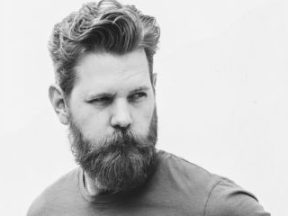Bryant Jaquez picked a heck of a time to become a CEO. A longtime CMO for direct-to-consumer brands, Jaquez accepted the CEO job early this year for BuddyLove, a Dallas-based women’s apparel company coming off a pandemic-fueled boom and a dismal 2023.
“The overhead and debt service caught up with them,” he told me. “Thus far my job has been a lot of restructuring, evaluating expenses, and making deep cuts — some were painful, such as layoffs.”
He and I recently discussed his journey — from chief marketer to chief executive — including decision-making, stress, compensation, equity stakes, and more.
Our entire audio conversation is embedded below. The transcript is edited for length and clarity.
Eric Bandholz: Give our listeners a recap of who you are.
Bryant Jaquez: I’m a serial CMO turned CEO of BuddyLove, a women’s apparel company based in Dallas, Texas. My background is in direct-to-consumer ecommerce. I’ve worked in the industry for 10 years. Until about seven weeks ago, I led marketing teams. I joined BuddyLove, my first CEO role, in early January.
A CEO at a DTC company must also be an entrepreneur. And I’ve always been entrepreneurial. You have to be obsessed with your work and love it. You must also be ready to take on all the stress and responsibility of running an entire company.
BuddyLove was started in 2010 by a husband-wife team, Buddy and Grayson DeFonso. Grayson designs all of our clothes. Buddy was running the operations but grew tired of it. He approached me and asked if I would be interested in joining the team.
I was ready for a change. There are limitations on how much a CMO can grow professionally. You’re either working towards an exit or trying to increase revenue. I realized that I needed to launch a business myself or run one. So it was good timing.
Bandholz: Is the job what you expected two months in?
Jaquez: BuddyLove hit $14 million in revenue last year — quite a bit smaller than the brands I came from but big enough to have money for fast growth.
BuddyLove is in a similar position to many DTC brands post-pandemic, post-low-interest rates. The company took on a lot of debt. They made some big bets with inventory and cash flow. It worked so long as sales doubled year over year.
Then they had a much slower year in 2023. The overhead and debt service caught up with them. So now we’re cleaning the balance sheet. Our focus is profits and scaling back to a lean company. Thus far my job has involved a lot of restructuring, evaluating expenses, and making deep cuts — some were painful, such as layoffs.
I thought I was good at handling pressure. I jumped on board and started digging into the numbers. I realized we needed to restructure. It took me a couple of weeks to catch my breath.
I’m happy to report that it’s working. We’re rebuilding the brand from the inside out. We’re keeping the soul intact — Grayson’s designs aren’t changing — but we are reimagining how things are run.
Bandholz: How do you earn the team’s trust as the new boss who lays off staff?
Jaquez: The day we did layoffs was one of the hardest of my career. I believe in honesty. I’m a high-care, high-honest communicator. After spending a few days digging into the books, I called the entire team together. I told everybody about the situation. I said, “This is where we’re at. This is the path ahead of us. It’s going to be painful. We have to make cuts. We have to get profitable. We have to spend less than we bring in.”
I tried to lay people off in the manner I would want if the roles were reversed. That included trying to help them find opportunities as quickly as possible. So on that day I posted on X, “These are the positions we let go. Does anybody need these roles?” Within 24 hours, I had opportunities for everyone who wanted them. A few didn’t respond to my attempts to connect them.
We were around 40 employees. Now we’re at about 24.
Bandholz: Many founders want to hire a CEO to grow the company. What does a CEO candidate look for?
Jaquez: For me it’s equity, skin in the game. I took inspiration from Elon Musk’s story of creating out-of-the-money outcomes and structuring an equity agreement to hit them. That’s what we did at BuddyLove. Every time we hit a milestone, it unlocks more equity for me. Right off the bat, I was in a better position than the one I left. So, the simple answer for an entrepreneur is to find out the compensation of the person you’re trying to recruit and make your offer much better.
That’s enough to pique their interest. Then you have to ensure you’re aligned on an exit plan and long-term goals. What kind of a company do you want? What do you sell? Hiring a CEO is one of the riskiest things you can do.
The CEO of a rapidly growing DTC brand likely earns multiple six figures annually plus equity. But here’s what founders need to hear about equity. I had an equity option at my previous employer, apparel brand Caden Lane, that would execute only at the point of a liquidation event. However, the founder was the sole shareholder and controlled when, if ever, that event would occur.
In 2021, she turned down an offer to sell for $100 million. My equity was essentially monopoly money because it didn’t mean anything unless we sold, and I had no control over whether or not we’d sell.
So, founders and CEOs should be aligned on when and how an equity stake can be monetized.
Bandholz: Where can people follow you and buy your clothes?
Jaquez: Shop for women’s apparel at BuddyLove.com. Follow me on X, @BryantJaquez.




